Many discomforts may grow along with the baby in the womb. Giving birth to the baby gives every mom an amazing experience and is very crucial stage. It is very important to know what is common and what is not during the pregnancy.
It is quite common to experience discomforts as your body is developing a new organ called Placenta to nourish the baby. Don’t blame the baby for any discomforts during the first and early second trimesters. The baby is too small to put pressure and create discomfort. A pregnant woman may experience pain throughout the body, such as lower back, breasts, abdomen, and vaginal pain is one among those. Here are a few things that you need to know about the vaginal pain.You may experience vaginal pain in alltrimesters.
This article discusses the causes of vaginal pain during the pregnancy. It presents the ways to get relief from the vaginal pain during pregnancy.
What is Vaginal Pain During Pregnancy?
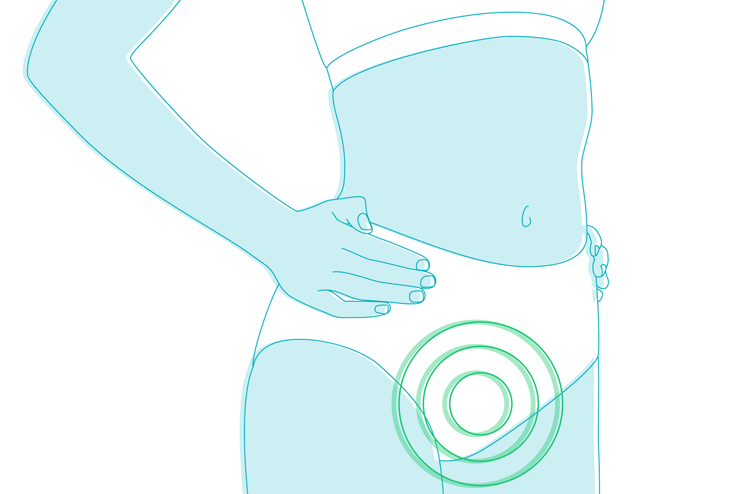
It is the sharp pain that you may experience in the vagina, rectum, or pelvis. The pain may be occasional and varies from woman to woman.
There are three types of vaginal pains in that woman usually experience. They are:
Stabbing Pain: Woman may experience painful sensations under this category. This occurs due to the stretching of the muscles between the 5th and 8th weeks of pregnancy. If your experience pain late in the third trimester, then it may be a sign of upcoming child birth.
Nagging Pain: This pain is alarming among most women, not just the pregnant woman. This occurs due to the inflammatory processes in the Fallopian tube or cervix. If this pain calms down after the treatment, then there is nothing to worry about. You must visit your doctor if it is increasing.
Cutting Pain: Minor cutting pain during pregnancy is common and is the result of growing uterus to accommodate the foetus. This can also be the result of cystitis in the early pregnancy stages. The pain occurring in the later stages of pregnancy needs emergency medical attention as this may be the sign of placental detachment.
What are the Symptoms of Vaginal Pain?

Many women complain about pain in the private area during pregnancy. Symptoms of vaginal pain may vary from woman to woman depending on the underlying problems.
Here are the few symptoms associated with the vaginal pain that you might experience depending on the specific condition.
- Burning sensation
- Itching
- Pain in series of regular beats
- Pain during intercourse
What Causes Vaginal Pain During Pregnancy:
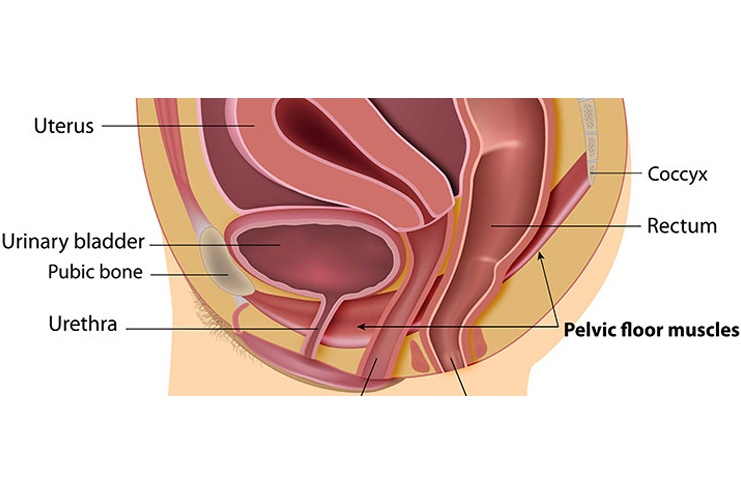
Women may encounter vaginal pressure or vaginal pain during the pregnancy. Here are the few causes for pain in vagina during pregnancy.
1. Hormonal Changes:
The hormone Relaxin will help the cervix to dilate and prepares the uterus for the action of oxytocin during labour. Higher levels of this hormone in early pregnancy help the fertilizing eggs to implant in the lining of the uterus. Some women may experience muscle pain or tension around the vagina due to increased relaxin levels.
2. Weak Pelvic Floor:
The combination of weakening of pelvic floor and increased weight puts pressure on the pelvis during the second and third trimesters. This may cause pressure on the vagina.
Pregnancy can weaken the pelvic floor which supports the uterus, vagina, urethra, and bladder. Women who have given already given birth may have damaged pelvic floor which further weakens in the subsequent pregnancy. When the pelvic floor is weakened , it puts pain and pressure on the vagina.
3. Increased Blood flow:
Higher levels of Estrogen and Progesterone may increase the blood flow in the vagina. This increased blood flow may cause discomfort or pain in the vagina.
4. Growth of Foetus:
As the size of a foetus in the uterus increases, the connective tissues stretch to accommodate the growth. Overstretching of the tissues may and muscles surrounding the vagina may cause sharp vaginal pain.
5. Pelvic Organ Prolapse (POP):
It is the condition where the pelvic floor fails to support and keep the organs in their positions. The organs in the pelvis move down and sometimes into the vagina. This creates intense pressure and makes it difficult to control your bowel movements. If you come across this situation consult your doctor immediately.
6. Vaginal Infection:
The pregnant women are most likely affected by the infection known as candida as their immunity is very low. Vaginal infections may cause pain accompanied by other symptoms like vaginal discharge, nausea, diarrhea, or backache. If you suspect vaginal infection consult your doctor for the diagnosis.
7. Bladder Infections:
If the vaginal pain or pressure is accompanied by difficulty going to the bathroom or pain while passing urine is the result of bladder infections and you should check with your doctor to avoid further complications.
8. Ectopic Pregnancy:
It is a complication that occurs in the pregnancy when the embryo attaches outside the uterus resulting in the abdominal pain and vaginal bleeding and abdominal pain. In certain cases, Ectopic pregnancy may cause rupture to the uterine tube resulting in the vaginal pain, bleeding, and nausea. Ectopic pregnancies can not be carried further as the fertilized eggs find it difficult to survive outside the uterus.
9. Weak Cervix:
Some women may have weak cervix. This may lead them to the conditions like miscarriage or premature labour. Women with weak cervix may experience vaginal pain and pressure in the early pregnancy.
Weak cervix is an emergency medical condition and is treatable with early intervention.
How to Get Rid Of Vaginal Pain During Pregnancy
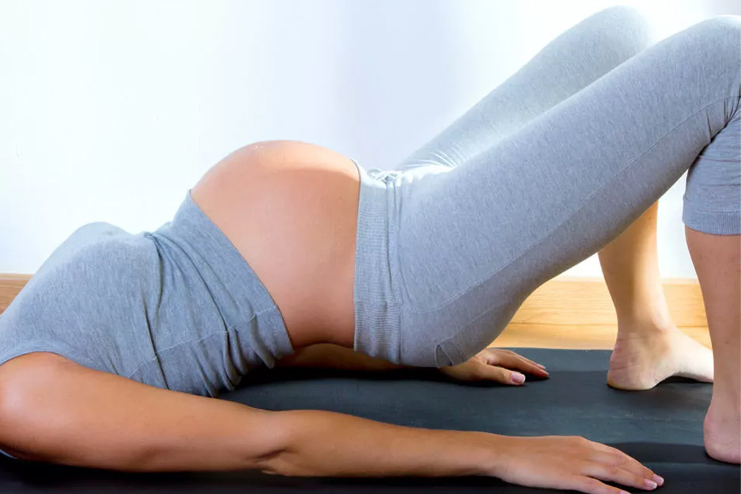
Vaginal pain is very common in every expectant mother. So, it will be helpful to learn the technique to tackle the vaginal pain. Vaginal pressure is mostly due to weak muscles and pressure on the pelvis few stretches will help to reduce the pain. In most of the cases you can reduce the pain intensity with the simple measures. Here are the few:
1. Kegel Exercises:
This exercise will help to strengthen the muscles under the uterus strong. They help both men and women to deal with urine leakage or bowel control.
How to Do:
Sit or lie down when your bladder is empty.
- Tighten and hold the pelvic floor muscles for 3 to 5 seconds.
- Relax the muscles counting 3 to 5 seconds.
- Repeat 10 times, 3 times a day.
Note:
- Make sure that you are not tightening the stomach, thigh, buttock or chest muscles.
- If you put too much pressure, then it may tighten the vaginal muscles too much leading to pain during sexual intercourse.
2. Stay Active:
Remain active during the pregnancy by performing the low intensity exercises like walking. This will help in reducing the pressure on pelvic muscles and keep them strong.
3. Keep Hydrated:
Make yourself hydrated by drinking plenty of water, especially after exercises. This can reduce the risk of constipation, otherwise may lead to pressure.
4. Lie on Your Left Side:
Prefer to lie down on your left side which helps in improving the blood circulation and reduces the vaginal pressure and pain.
5. Wear Pregnancy Support Belt:
If your tummy is huge, it is an indicator that your baby is putting pressure on the vagina.Wear a pregnancy support belt to support your lower back and baby bump during the activities. Belly bands are safe as they provide gentle compression during the activities.
Note : Wear the belly bands for not more than 2 to 3 hours in a day.
6. Pelvic Tilts:
Pelvic tilts will help to strengthen your abdominal muscles and stretches the muscles in your lower back.
- Lie on the floor with your back and folded knees facing the toes forward.
- Pull the belly button towards the spine and lift the pelvis up.
- While tilting the pelvis forward, tighten the gluteus and hip muscles.
- Hold this position for 5 seconds and do 5 sets of 20 repetitions.
7. Keep your feet elevated:
While sitting keep your feet elevated which helps to get relief from the pressure and pain.
8. Sitz Bath:
Take a sitz bath, in which only buttocks are hips are immersed in water, with warm water which helps in cleaning the perineum. It can also keep you away from the pain and itching during pregnancy.
To reduce the pressure and to reduce the vaginal pressure lie down on your feet.
9. Prenatal Yoga Classes:
This is the best option to stay fit, healthy and prepare for childbirth. A prenatal yoga class involves breathing, gentle stretching, postures, cool down and relaxation. The following are the few benefits of yoga:
- It strengthens the muscles needed for child birth.
- It helps to cope up with the discomforts during pregnancy.
- Yoga improves sleep, reduces stress and anxiety.
10. Pelvic Massage:
Pelvis massage is the preparation of the muscles and skin between your rectum and vagina for the birth of your baby by gently massaging and stretching the pelvic floor. It’s not easy to give pelvic massage yourself consult a trained pelvic floor therapist.
11. Apply Coconut oil:
Take a few drops of coconut oil, almond oil or any other oils designed for vagina and gently apply to the perineum. Coconut oil reduces the dryness of your vagina.
Vaginal Pain Impacts on Your Daily Life:
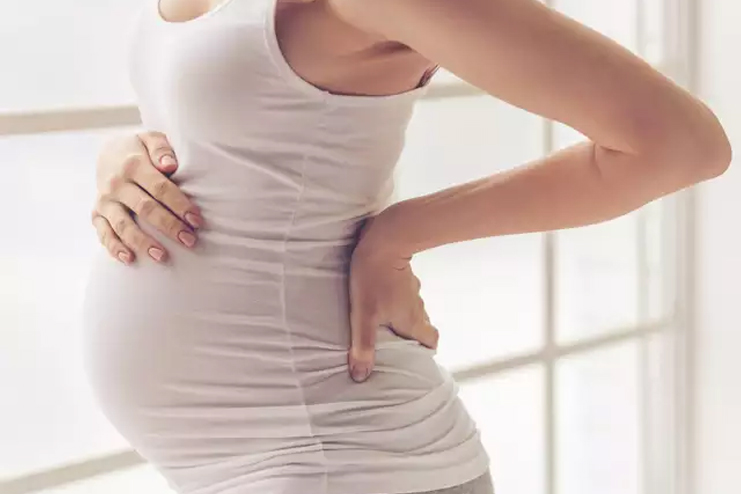
- The vaginal pain might have further impact on joints, bones, and muscles. The stress on the vagina increases as you move towards the delivery.
- Some women may easily get anxious over the uncomfortable situations during pregnancy.
You should be able to differentiate between the vaginal pain and vaginal pressure for further care and medication.
Difference between Vaginal Pressure and Vaginal Pain:
Moat of the women get confused with vaginal pressure and vaginal pain. Vaginal pain is the sharp piercing pain that you experience in the vagina.
Whereas the vaginal pressure is similar to cramps that you experience during the menstrual cycle. Vaginal pressure may also cause pain in the lower back.
When to See a Doctor for Vaginal Pain:
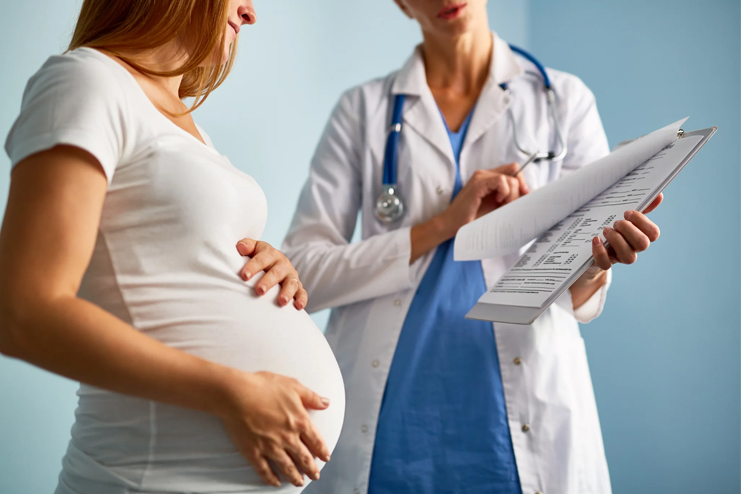
Contact your doctor immediately if you experience the following situations:
- Pelvic or vaginal pain is extreme that you can not walk or stand.
- Severe headache and dizziness.
- Sudden swelling of hands, face, and feet.
Vaginal pain is one of the common uncomfortable events during the pregnancy. A few changes in the lifestyle may help to reduce the vaginal pain and infections. If the pain is moderate and occasional, a few relief measures will help. If it is severe and frequent, check with your doctor for diagnosis and treatment.
Tips To Deal with Vaginal Pain During Pregnancy:
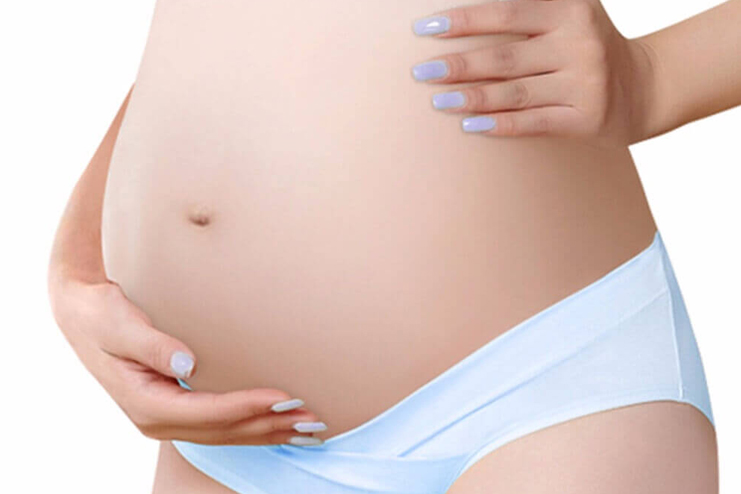
Here are a few tips to deal with uncomfortable situations like vaginal pain and have a pleasant experience during pregnancy:
- Wear cotton undergarments and don’t use fabric softener on underpants.
- Avoid tight clothes.
- Avoid activities like biking that put pressure on your vagina.
- Practise physical therapy under the guidance of your physician to strengthen the pelvic floor muscles.
- Adopt cognitive behavioral therapy which helps to deal with the emotions and feelings.
Awareness of the normal discomforts and the complications that occur during the pregnancy are very important. Awareness of the theses things can help the pregnant woman to stay in a safe and comfort zone. Any complication can be easily treated with the early intervention. Don’t let the vaginal pain to ruin your pregnancy experience. Follow the 11 ways and tips mentioned in this article to get rid of vaginal pain during pregnancy.










































